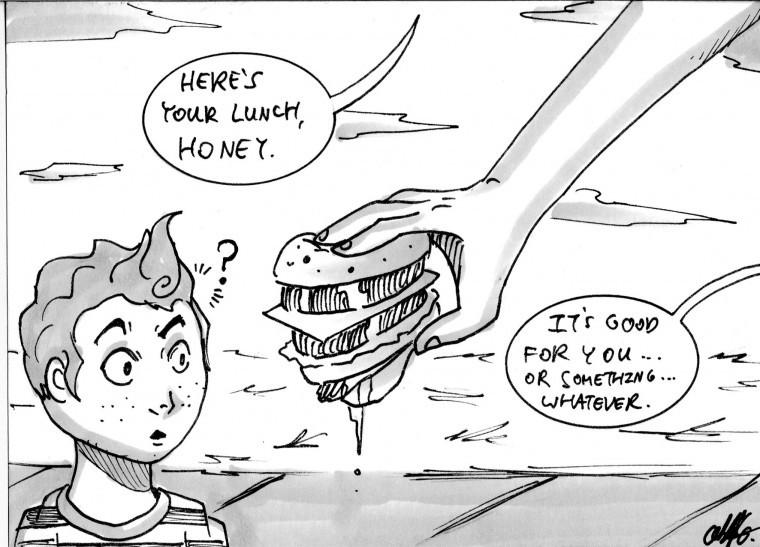Lazy parenting is becoming rampant in U.S society
August 30, 2010
American society today is based on a “quick fix.” To name a few things popular within our culture, we have high-speed internet, same day grocery delivery service, fast food, and get-rich-quick schemes. But of course, advancement in technology and the economy’s unstable state plays a huge part in this.
But why would we let this affect our quality of family life? Instead of reading to babies, parents have Baby Einstein to do it for them. Instead of taking a child to the park on a Saturday, parents have video games that will take the child’s attention away from them. Parenting, as we used to know it, has become impersonal and lazy.
For example, fast food has turned from a quick and simple indulgence (“Hey kids, how about we get McDonald’s tonight?”) to being a permanent fixture in children’s diets. Looking at the current complexities of working-class American households, it is expected that time is a limited factor in raising a family. And there is no harm in parents opting for a communal relief in fast food.
One could even say, “Hey what is the big deal? That is what fast food restaurants are made for.” Which is true, but it seems like now-a-days that working relationship between parents and fast food has turned into a dictatorship of lazy parenting.
Look at McDonald’s. It has established itself as the world’s largest fast food chain as well as one of the world’s most recognizable brands. And although this is a monumental feat, being at the top has also made it a perfect target for dictatorship of lazy parenting.
Recently, local politicians of Santa Clara County, Calif., have been pushing for the removal of toys in McDonald’s Happy Meals.
Californian politician Ken Yeager told The New York Times, “This ordinance prevents restaurants from preying on children’s love of toys to peddle high-calorie, high-fat, high-sodium kids’ meals.”
Considering McDonald’s encourages a variety of healthy choices for kids (including “Apple Dippers” in place of fries, and milk or apple juice in place of a soda), Yeager’s comment seems invalid. And even without the healthier products, why target toys?
So according to the supporters of this ban, no toys will equal healthier kids. I do not think so, and neither does the California Restaurant Association. In response to Yeager’s proposal, association spokesperson Dan Conway replied, “I have to question how taking the toys hostage can help consumers make smarter choices.”
It is not like the target age group of the Happy Meal brand can purchase a meal independently anyway. The real consumers are these children’s parents. It is not McDonald’s fault that some, or in the case of California (according to this ban), most parents choose not to actively mediate their children’s nutritional consumption. Although home-cooked meals may be a luxury some families cannot afford, you can buy healthy, ready-to-go dinners at Target or Wal-Mart.
It is a shame parenting has become so lazy that parents expect a fast food restaurant to make their children want to eat healthier for them.







